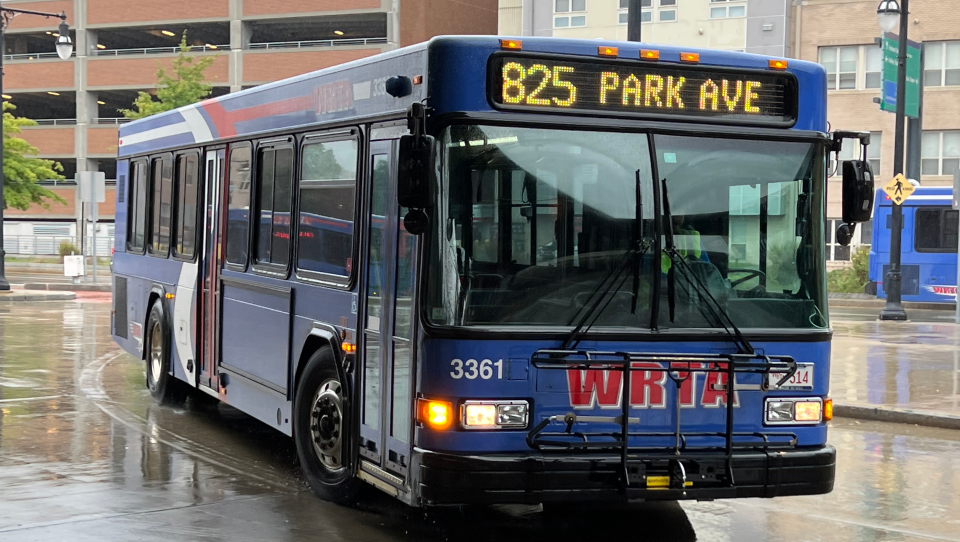A coalition of mass transit enthusiasts say Worcester needs an expanded and more efficient bus service. They’re proposing the city adopt a bus rapid transit system akin to the MBTA’s Silver Line.
Advocates want buses that would operate in their own dedicated lanes and trigger or extend green lights for faster travel. The proposed service would operate alongside Worcester’s existing bus system, but would specialize in connecting distant areas of the city like UMass Chan Medical School and Worcester State University.
The coalition says in addition to decreasing travel times, the bus rapid transit system could prompt some residents to ditch their cars for bus seats, helping reduce emissions and prevent traffic accidents.
“There’s been this epidemic of pedestrian and bicycle injuries. One way you can improve the safety of streets is by getting more cars off the road,” said Justin Hollander, a Tufts University urban planning professor who’s leading the push for the new service.
Bus rapid transit has become increasingly popular nationwide, with metro areas ranging from Miami to Cleveland adopting some form of the system. It’s a cost-effective way for communities to improve their mass transit service, compared to more expensive approaches like installing subways or streetcars.
In Worcester, mass transit advocates say they’re grateful that Worcester Regional Transit Authority buses continue to be free for riders. Still, residents like Will Talbot, who rely on the bus to travel to work and appointments, say the current service is inadequate.
“The frequency of every 30 minutes to every hour on most of the bus routes is quite difficult because if you miss the bus, it’s quite a long wait,” said Talbot, who’s with the nonprofit Strong Towns Worcester, one of the groups behind the effort to bring the new bus system to the city.
The WRTA says it’s trying to improve its existing bus service, including increasing frequency and reviewing whether any routes need more stops. The agency’s administrator, Joshua Rickman, told GBH News that although Worcester has some narrow thoroughfares that may not accommodate bus-only lanes, the agency plans on looking into whether other aspects of bus rapid transit are feasible.
“Capital investments along WRTA’s key corridors are a logical next step for improving fixed-route service,” Rickman said.
Backers of bus rapid transit say they’ll continue to push for the system and will look for an alternative operator if the WRTA chooses not to move forward with it. The coalition of advocates is still in the early phases of community outreach and plans to produce a blueprint for how the service could operate. They hope local transit leaders have an appetite to at least try a pilot program.
Some residents have expressed concerns that the WRTA may need to resume fare collection in order to pay for the new system. Hollander said those worries are legitimate, considering the federal government may not be willing to chip in.
“But it’s not stopping us,” he said. “This is a great city that has potential to provide better infrastructure and better mobility for residents, for visitors. I think that these are all very attainable goals for a city of Worcester’s size.”





